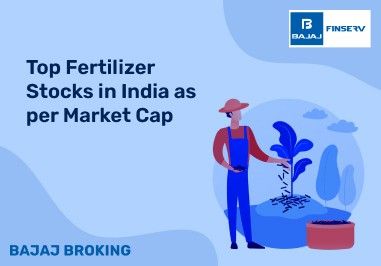BAJAJ BROKING
PDP Shipping & Projects IPO is Open!
Open a Free Demat Account
Trade Now, Pay Later with up to 4x
Track Market Movers Instantly
SME IPOs: The New Rules and What They Mean for You
If you've been keeping an eye on the stock market lately, you might have noticed a bit of a frenzy around SME (Small and Medium Enterprises) IPOs. These are smaller companies looking to raise money by going public, and recently, some of them have been grabbing headlines for all the wrong reasons. The National Stock Exchange (NSE) has decided it's time to step in and tighten the rules. So, what does this mean for you as an investor? Let’s break it down.
The Hype Around Resourceful Automobiles
Take the recent IPO of Resourceful Automobiles, for example. It’s a small bike dealership with just two showrooms and eight employees. Not exactly a giant in the industry, right? Yet, this company decided to raise ₹12 crores through an IPO. What happened next was surprising — investors jumped in with offers totalling nearly ₹4,769 crores! That’s a huge amount of money for such a small company. But here's the concern: a big chunk of the money raised wasn’t even meant to grow the business but to pay off existing loans. Despite this, the stock stayed solid, never dropping below its issue price.
Sounds like a great deal? Maybe not.
Why the NSE Is Taking Action
Stories like Resourceful Automobiles are exactly why the NSE is cracking down on SME IPOs. The stock market isn’t just about making money; it’s also about ensuring fairness and transparency. When small companies with shaky financials start raising large sums of money, it’s a red flag. Investors could get swept up in the hype, only to find out later that the company isn’t as solid as it seemed.
To tackle this, the NSE has rolled out some new rules to make sure only the most stable and trustworthy companies can launch an IPO. Here’s what’s changing:
What Are the New Rules?
- Positive Free Cash Flow to Equity: From now on, any company looking to go public must show positive Free Cash Flow to Equity (FCFE) for at least two of the last three years. In simple terms, this means that after paying off all its debts, the company should still have some cash left over. This rule ensures that only financially healthy companies can hit the market.
- Price Cap on Opening Day: To prevent wild price swings, the NSE has introduced a cap on how much a stock’s price can jump on the first day of trading. For example, if a company issues shares at ₹100, the price can’t shoot up more than 90% on the first day, meaning it can’t trade higher than ₹190. This is meant to protect investors from extreme volatility.
- Stricter Listing Criteria: The NSE is also tightening the requirements for companies to list on its SME platform. This includes tougher disclosure norms and more scrutiny of how the IPO money will be used.
What Does This Mean for Investors?
For investors, these new rules are a double-edged sword. On one hand, they offer more protection by ensuring that only solid companies can launch an IPO. On the other hand, they might limit opportunities to invest in high-risk, high-reward startups. If you’re someone who likes to take a chance on the next big thing, you might find fewer options available.
But here’s the bottom line: these rules are designed to make the market safer and more transparent. It’s no longer enough to just jump on the bandwagon; investors will need to do their homework and be more selective about where they put their money.
The Road Ahead
The NSE’s crackdown is just the beginning. As more rules are rolled out, the landscape for SME IPOs is likely to keep changing. For now, if you’re thinking about investing in an SME IPO, it’s more important than ever to do your research. Look beyond the hype, dig into the company’s financials, and make sure it’s a sound investment.
Remember, in the world of SME IPOs, not everything that glitters is gold. But with the right approach, you can still find some real gems.
Disclaimer: Investments in the securities market are subject to market risk, read all related documents carefully before investing.
This content is for educational purposes only. Securities quoted are exemplary and not recommendatory.
For All Disclaimers Click Here: https://bit.ly/3Tcsfuc
Share this article:
Read More Blogs
Our Secure Trading Platforms
Level up your stock market experience: Download the Bajaj Broking App for effortless investing and trading













